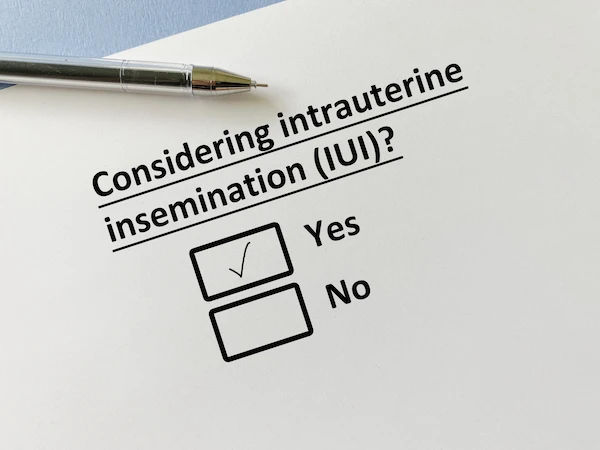What Leads to Nausea? Top Causes and Soothing Remedies
Discover what causes nausea—from everyday triggers like stress, motion sickness, and food sensitivities to serious health conditions. Learn effective home remedies, treatment options, and when to seek medical help for lasting relief.

Written by Dr. Vasanthasree Nair
Reviewed by Dr. J T Hema Pratima MBBS, Fellowship in Diabetes Mellitus
Last updated on 13th Jan, 2026

That uneasy, queasy feeling in the pit of your stomach—nausea is a universal human experience, but it's far from pleasant. It’s not an illness itself but a powerful symptom, your body’s alarm bell signalling that something is off-balance. Whether it's a fleeting moment of discomfort or a persistent problem, understanding what leads to signs of nausea is the first step toward finding relief. This guide will walk you through the common and surprising causes, from everyday triggers to more serious medical conditions, and provide practical, evidence-based strategies to calm your stomach and reclaim your day.
What is Nausea, Really?
The Body's Early Warning System
Nausea is a complex, subjective sensation that often precedes vomiting. It originates in the brain's "vomiting centre," an area that receives signals from various parts of the body. Think of it as your body's central alarm system. When it detects a potential threat—like a toxin, a disturbance in balance, or severe pain—it triggers nausea as a warning, urging you to stop what you're doing or to expel the harmful substance. This evolutionary mechanism is designed to protect us, but it can be activated by a wide range of non-threatening triggers as well.
Common Everyday Causes of Nausea
Most bouts of nausea are short-lived and can be traced back to simple, everyday factors.
Dietary Triggers and Food-Related Issues
What we eat (and how we eat it) is a primary culprit. Overindulging in a rich, fatty meal can overwhelm your digestive system, slowing down digestion and causing discomfort and nausea after eating. Spicy foods or those to which you have a sensitivity can also be triggers.
Food Poisoning and Stomach Bugs
One of the most common causes of nausea and vomiting is viral gastroenteritis, often called the "stomach flu." It’s frequently accompanied by diarrhoea and abdominal cramps. Similarly, food poisoning from bacteria like E. coli or Salmonella will aggressively trigger nausea as the body tries to purge the pathogens.
Overeating and Rich, Fatty Foods
Consuming large quantities of food, especially those high in fat, forces your stomach to stretch and produce more acid. This can lead to acid reflux (where stomach acid backs up into the oesophagus) and a significant feeling of fullness and queasiness.
Motion Sickness and Vertigo
If you feel nauseous on a boat, in a car, or on a roller coaster, you're experiencing motion sickness. It occurs when your brain receives conflicting messages from your eyes, inner ears (which sense motion and balance), and the rest of your body. This sensory mismatch directly stimulates the brain's vomiting centre. Vertigo, a sensation of spinning, often caused by inner ear problems, can have the same effect.
Stress, Anxiety, and Emotional Distress
Your gut and brain are intimately connected by the gut-brain axis. During periods of intense stress or anxiety, your body releases hormones like adrenaline. This can disrupt digestive processes, slow stomach emptying, and increase stomach acid, all of which can manifest as a nervous stomach, butterflies, or full-blown nausea. For some, this is a primary symptom of an anxiety or panic attack.
Underlying Medical Conditions That Cause Nausea
When nausea is frequent or severe, it may point to an underlying health issue that requires medical attention.
Gastrointestinal Disorders
Conditions like Gastroesophageal Reflux Disease (GERD), peptic ulcers, Irritable Bowel Syndrome (IBS), and gallstones directly irritate or disrupt the digestive tract, making constant nausea without vomiting a common complaint.
Inner Ear and Balance Disorders
The inner ear is crucial for balance. Infections like labyrinthitis or vestibular neuritis inflame the nerves in this area, leading to severe vertigo and often debilitating nausea and vomiting.
Infections
It’s not just stomach viruses. Systemic infections like influenza (the flu), COVID-19, and even urinary tract infections (UTIs) can cause nausea as the body mounts a general immune response to fight off the invading pathogens.
Migraines and Severe Headaches
For many migraine sufferers, nausea and even vomiting are hallmark symptoms, often as debilitating as the head pain itself. The exact link is unclear, but it's believed that changes in brain activity during a migraine affect the vomiting centre.
Heart Conditions
This is a critical red flag. In some cases, particularly in women, nausea and dizziness can be symptoms of a heart attack. If nausea is accompanied by chest pain, shortness of breath, cold sweat, or pain radiating to the jaw or arm, seek emergency medical help immediately.
Nausea Linked to Specific Life Stages and Treatments
Morning Sickness in Pregnancy
Up to 80% of pregnant people experience nausea, typically in the first trimester. It's believed to be caused by rapidly rising levels of the hormone hCG. Despite the name, "morning sickness" can strike at any time of day.
Side Effects of Medication and Medical Treatments
Many prescription drugs, including antibiotics, antidepressants, and pain relievers like NSAIDs, list nausea as a potential side effect. The chemicals in the medication can irritate the stomach lining or directly affect the brain's vomiting centre.
Chemotherapy-Induced Nausea
This is one of the most well-known and severe forms of treatment-related nausea. Chemotherapy drugs are powerful and can severely damage the rapidly dividing cells lining the digestive tract, triggering intense nausea.
When to Be Concerned: Seeking Medical Help
While most nausea passes, certain symptoms warrant immediate medical evaluation. Seek prompt medical attention if your nausea is accompanied by:
Chest pain, severe abdominal pain, or cramping.
High fever and stiff neck.
Blurred vision, fainting, or confusion.
Signs of severe dehydration (dark urine, dizziness, extreme thirst).
Vomiting that lasts more than 24 hours or contains blood.
Soothing the Storm: Effective Home Remedies for Nausea
For common nausea, several home remedies for nausea relief can be highly effective.
Dietary Adjustments
Ginger: A powerhouse for nausea relief. Studies show it is effective for morning sickness, motion sickness, and chemotherapy-induced nausea. Try ginger tea, candied ginger, or ginger ale (made with real ginger).
The BRAT Diet: If you've been vomiting, start with bland foods like Bananas, Rice, Applesauce, and Toast once your stomach has settled.
Peppermint: The scent or taste of peppermint (in tea or oil) can have a calming effect on the stomach muscles.
Hydration Strategies
Sip clear fluids like water, broth, or an oral rehydration solution slowly throughout the day. Avoid drinking large amounts at once, which can distend the stomach and make nausea worse.
Lifestyle and Environmental Tweaks
Rest: Sit up or recline with your head elevated rather than lying completely flat.
Fresh Air: Avoid strong cooking smells, perfume, or stuffy rooms. A cool breeze from a fan or open window can help.
Acupressure: Applying pressure to the P6 (Nei-Kuan) point on the inner wrist, about three finger-widths down from the wrist crease, has been shown to reduce nausea. Sea-Bands are wristbands designed for this purpose.
Conclusion
Nausea is an uncomfortable and sometimes alarming sensation, but by understanding its vast array of potential causes—from the simple to the complex—you are empowered to address it effectively. Listening to your body is key. A brief episode after a big meal may be perfectly normal, but persistent queasiness is your body's way of asking for help. Start with gentle home remedies, but never hesitate to seek professional medical advice to rule out serious conditions. By identifying your personal triggers and having a toolkit of relief strategies, you can navigate these uneasy feelings and find your way back to comfort and health.
FAQs About Nausea
Q1. Why do I feel nauseous all the time but never vomit?
Constant nausea without vomiting can be linked to anxiety, stress, GERD, certain medications, or chronic conditions like gastroparesis (delayed stomach emptying). It's important to see a doctor to identify the underlying cause.
Q2. What is the fastest way to get rid of nausea?
Sipping on cold water or a ginger ale made with real ginger, sucking on a peppermint, and getting fresh air are some of the quickest strategies. Acupressure on the inner wrist can also provide rapid relief for some people.
Q3. Can dehydration cause nausea?
Absolutely. Dehydration can disrupt electrolyte balance and blood pressure, leading to dizziness and nausea. Ironically, vomiting causes dehydration, creating a vicious cycle. It's crucial to sip fluids slowly.
Q4. Why do I feel nauseous after eating?
Nausea after eating can be due to overeating, consuming overly rich or spicy foods, food intolerances, acid reflux, or more serious conditions like gallstones or ulcers. Keeping a food diary can help identify patterns.
Q5. Is nausea a sign of COVID-19?
Yes, nausea, vomiting, and diarrhoea are recognised gastrointestinal symptoms of COVID-19, sometimes even appearing before respiratory symptoms like a cough or fever.
Consult a Specialist for Personalised Advice
Consult a Specialist for Personalised Advice

Dr. Rajib Ghose
General Physician/ Internal Medicine Specialist
25 Years • MBBS
East Midnapore
VIVEKANANDA SEBA SADAN, East Midnapore

Dr. Ashita Kuruvilla
General Practitioner
7 Years • MBBS
Kolkata
KVC CLINIC, Kolkata

Dr. Debdatta Pati
Psychiatrist
18 Years • MBBS, DPM, MD (PSYCHIATRY)
Kolkata
MCR SUPER SPECIALITY POLY CLINIC & PATHOLOGY, Kolkata

Dr. Ekta Pandey
General Physician/ Internal Medicine Specialist
5 Years • MBBS
Kolkata
Dr Ekta Pandey Clinic., Kolkata
(125+ Patients)

Dr. Akshay Kumar Singh
General Physician
2 Years • MBBS
Bengaluru
PRESTIGE SHANTHINIKETAN - SOCIETY CLINIC, Bengaluru




